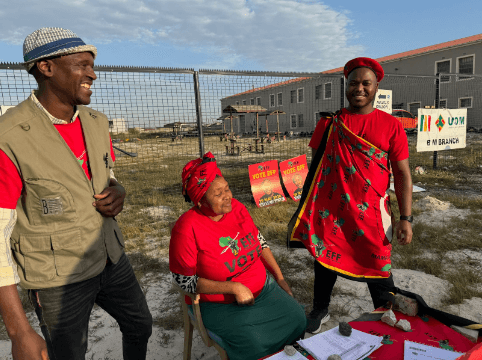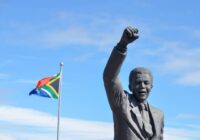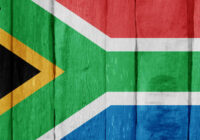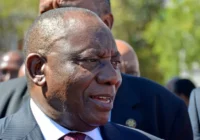It is difficult to overestimate just how significant the May 29 election has been for South Africans. The deluge swept away old certainties and revealed a new political landscape. The Election Commission declared the result free and fair, and so it was.
At its most basic, the election repeated lessons from abroad: Over time, parties that lead nations in their fight against colonialism lose their gloss. The Indian National Congress or the Kenyan African National Union are cases in point. When the reality of running a country comes home to roost, voters gradually become disillusioned.
In South Africa, the proportional representation system exacerbated this disillusionment. Voters elect national lists and are deprived of someone to represent their own suburbs, towns and villages in parliament. Further, the low vote threshold allowed dozens of tiny parties to emerge, eroding the vote shares of the once mighty African National Congress (ANC).
South African voters are unhappy, and only 58.6% of them turned out to vote this year, down from 66% in 2019. Still more dramatically, the ruling ANC dropped to 40.2% from 57.5%. This is the first time that the ANC has failed to win a majority since the implementation of universal suffrage in 1994.

Five parties split most of the votes. Source: Election Commission of South Africa. https://results.elections.org.za/dashboards/npe/
“Doomsday coalition”
The ANC can no longer rule alone. What should it do now? The party has rejected suggestions that President Cyril Ramaphosa fall on his sword and resign — at least for the moment. Ramaphosa and other party higher-ups have been locked in meetings all weekend. The National Working Committee of the ANC met on Monday, followed by the National Executive Committee meeting today.
The choices the party faces are stark. One path would lead to an alliance with the new party of former President Jacob Zuma, uMkhonto weSizwe (MK). The party is so new and so dependent on Zuma’s charisma that it could hardly forge a stable relationship with the ANC. It is also deeply critical of the judiciary and the constitution.
The other possibility for the ANC would be to seek a relationship with the Economic Freedom Fighters (EFF) of Julius Malema. They are sometimes described as “radical,” but in reality, they combine xenophobia against Africans from the rest of the continent with demands for the seizure of land and wealth.

EFF members at a voting booth in Khayelitsha, Western Cape. Author’s photo.
Either alliance would see an acceleration of capital flight, combined with an exodus of skilled South Africans, black and white.
“The reality is if we do end up with an ANC-EFF or ANC-MK (coalition) there will be initial market jitters,” said Mandisa Zavala, head of asset allocation at financial firm Alexforbes in Johannesburg. Zavala predicted that this could spark an outflow from government bonds and pressure on the currency. The official opposition, the Democratic Alliance (DA), described a potential alliance ANC–EFF alliance as a “doomsday coalition.”
A government of national unity?
Alternatively, the ANC could take a completely different direction. Dr. Frans Cronje, chair of the Social Research Foundation, argues that the ANC really has only one alternative: to seek an alliance with the DA. This would require both parties eating a good deal of humble pie, since they have engaged in vitriolic attacks on each other.
The ANC is strongly statist, arguing that only the government can really run major institutions and redistribute jobs and wealth to the black majority. In reality, this has meant redistributing wealth to the ANC elite, in gross corruption that was termed “state capture” by an official enquiry. The DA — which has been holding its own meetings — takes exactly the opposite approach. While it believes in state payments to lift the poor out of poverty, it is strongly free-market in its economics. It is difficult to see how the approaches can be reconciled.

ANC supporters in Khayelitsha. Author’s photo.
Perhaps the DA could offer the ANC a “confidence and supply” arrangement. It would allow the ANC to hold the presidency, but would possibly take the influential position of speaker of parliament in return for guaranteeing that the ANC get its budget adopted. Still, the DA would seek other assurances. Many measures would be negotiated bill by bill as they came up for debate.
Such an arrangement could provide South Africa with a degree of stability and a generally centrist governance. This would be in line with the views of the majority, who are mostly Christian and conservative in outlook.
Instead of a confidence and supply arrangement, it is not impossible for the ANC and DA to form a full national unity coalition. However, the DA, as the potential smaller partner, is wary of being forced to compromise too greatly.

DA supporters rally in Cape Town. Author’s photo.
The situation is anything but clear. Many options could be considered before the dust settles. South Africans, along with their neighbors who rely so heavily on their regional economic strength, will be looking on nervously.
The views expressed in this article are the author’s own and do not necessarily reflect Fair Observer’s editorial policy.
Support Fair Observer
We rely on your support for our independence, diversity and quality.
For more than 10 years, Fair Observer has been free, fair and independent. No billionaire owns us, no advertisers control us. We are a reader-supported nonprofit. Unlike many other publications, we keep our content free for readers regardless of where they live or whether they can afford to pay. We have no paywalls and no ads.
In the post-truth era of fake news, echo chambers and filter bubbles, we publish a plurality of perspectives from around the world. Anyone can publish with us, but everyone goes through a rigorous editorial process. So, you get fact-checked, well-reasoned content instead of noise.
We publish 2,500+ voices from 90+ countries. We also conduct education and training programs
on subjects ranging from digital media and journalism to writing and critical thinking. This
doesn’t come cheap. Servers, editors, trainers and web developers cost
money.
Please consider supporting us on a regular basis as a recurring donor or a
sustaining member.
Will you support FO’s journalism?
We rely on your support for our independence, diversity and quality.









Comment